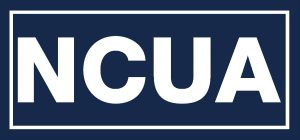Carrying a lot of debt can really hold you back in life. If you try to apply for a mortgage, for example, you may be denied if you already have an expensive car payment, a student loan, and significant credit card debt. Being deep in debt isn’t just an inconvenience—it can keep you from realizing your dreams.
If you’ve been thinking about breaking free from the chains of debt, the following are five debt payoff strategies that work. It takes time and dedication to reduce or eliminate debt, but the reward is worth the effort.
1. Debt Snowball Method
The debt snowball method is popular because it allows you to see quick wins. This helps to keep you motivated in achieving your debt payoff goals.
The debt snowball method is simple and easy to implement. The idea is to work on paying off your smallest debt and then progress to bigger debts after the first debt is eliminated. You will be putting as much money as possible towards one debt at a time while making the minimum monthly payments on your other debts.
It’s easy to become discouraged, and this debt payoff strategy can give you a big psychological boost. You could reward yourself with a mini celebration, for example, each time you pay off a debt by eating at your favorite restaurant or doing something else you enjoy.
2. Debt Avalanche Method
Avalanches usually start slowly and then build into massive movements of snow and ice. The debt avalanche method works the same way.
The debt avalanche method is similar to the debt snowball method. Instead of focusing on your smallest debt and working your way up, however, you start with the debt that has the highest interest rate and work your way down. The purpose of this strategy is long-term savings.
The main advantage of the debt avalanche method is that it allows you to save money on interest. The savings can be significant on long-term debts.
3. Equal Distribution Method
The equal distribution method is one of the most common debt payoff strategies. It is intuitive, easy to implement, and it doesn’t take long to start seeing results.
With this method, you make equal payments towards your debts each month. For example, if you would like to put $500 towards five separate debts each month, you would make five equal payments of $100 each.
The main advantage of this strategy is its simplicity. Very little planning is required, and dividing your money into equal payments is easy to do.
4. Cash Flow Method
The cash flow method is essentially the opposite of the debt snowball method. With the cash flow method, you concentrate on paying off your largest debt first and then work your way down.
The purpose of the cash flow method is to free up as much money as possible in the short term so you can use it for other things. This strategy can be used to quickly eliminate a lot of debt. This is an important consideration for those who are shopping for homes to make sure they are carrying as little debt as possible when they apply for mortgages.
A potential disadvantage of this method is that you do need to come up with a lot of money in a relatively short period of time for it to work. This may not be the best strategy for those with cash flow struggles.
5. Debt Consolidation Method
The debt consolidation method is a great way to save money on high-interest debts, like credit cards, which can have rates as high as 25% or more. If you are only able to make the minimum monthly payments on your credit cards each month, making a dent in the balance you owe can be very difficult.
With the debt consolidation method, you use a low-interest personal loan to pay off your balances from one or more credit cards or other high-interest debts. Your debt is consolidated into one monthly payment, which makes budgeting easier. It also helps you to escape the effects of compounding interest on your accounts.
Using Debt Payoff Strategies to Achieve Your Goals
If you aren’t sure where to start, TEG offers a free credit review. We can evaluate your current debts and offer recommendations to tackle your debt and save you money.
If you currently have debt from several sources, a debt consolidation loan from TEG Federal Credit Union could also be a great way to simplify debt payoff and lock in a low interest rate. Applying is quick and easy. You can do it online, in person at a local branch, or by phone.
Check out the following link for more information on our debt consolidation loans and how to apply:












